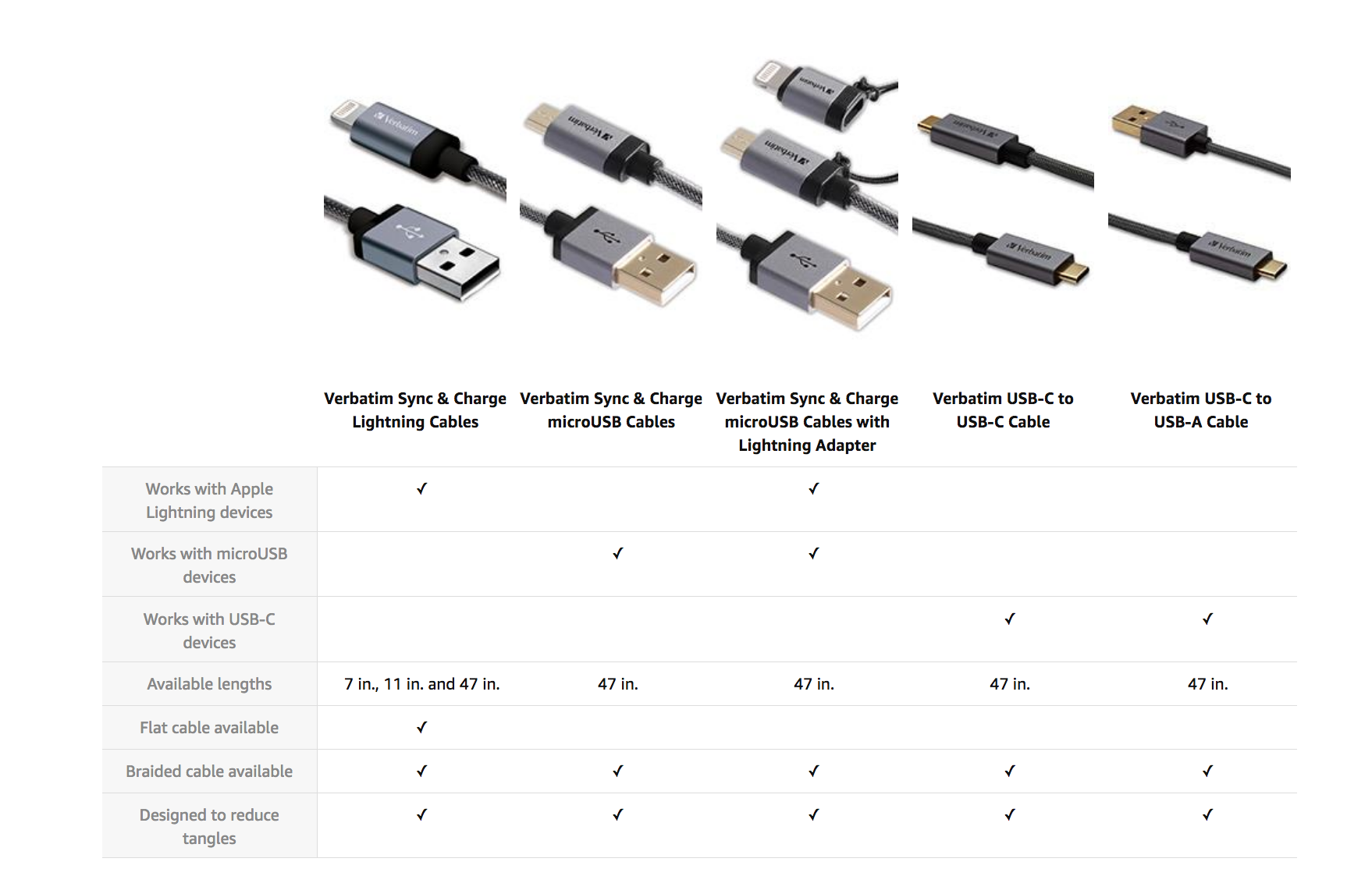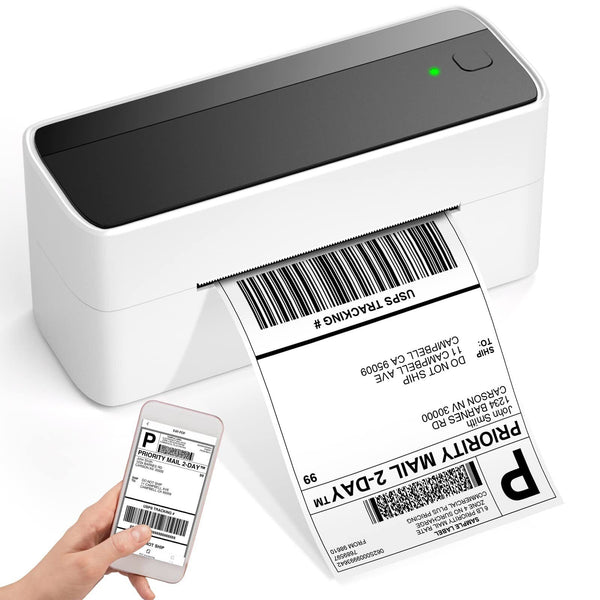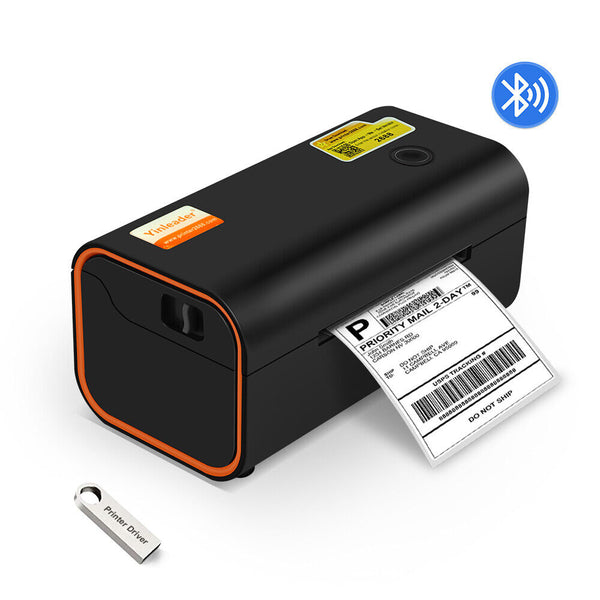Verbatim 99215 Sync/Charge Lightning Cable, 11 in. Braided Black



Verbatim 99215 Sync/Charge Lightning Cable, 11 in. Braided Black
Verbatim 99215
- Free Shipping
- 1 Year Warranty
- 30 Day Returns
- Carbon Neutral
Product Key Features
- Lightning port to USB cable - 11 in. (30 cm) length
- High quality cable ensures durability and reduces tangles
- Cable runs 2.1 Amps, ideal for charging iPads
- 1 year limited warranty
Verbatim
99215
Device must have lightning port. Compatible with iPhone 5 and later, iPod Touch 5th generation and later, iPod Nano 7th generation and later, iPad 4th generation and later, and iPad mini.
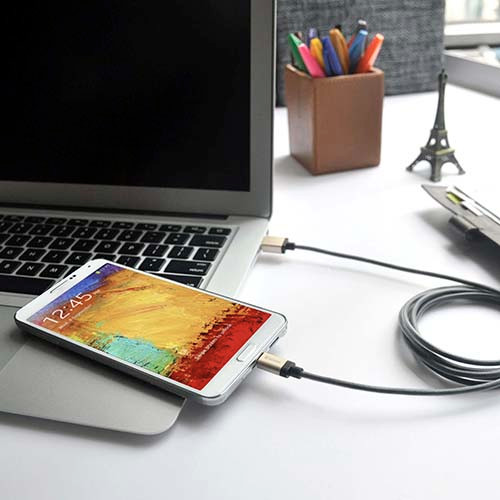
Charging Cables
As long as there have been devices, there have been cables to charge them. Over the years, technology has advanced so that now, you can use one cable to simultaneously charge your device and transfer data. Pretty much everyone has one, and most people have multiple cables, one for every device they have. And if you’re still using the cable that came with your device, it may be time for a replacement. Cables can degrade over time, and depending on your specific needs, there may be another cable that works better for you. When buying a new cable, there are several factors to consider.
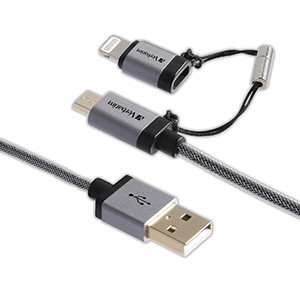
Compatibility
The most important factor in buying a new cable is to find one that’s compatible with your device. Currently, the most common types of cables are microUSB cables (for non-Apple devices) and Lightning cables (for Apple devices). And with the introduction of Type-C devices, Type-C cables will soon make their way into the market. Previously, if you had both kinds of devices, such as an iPhone and a Kindle e-Reader, you had to have a separate cable for each device. However, a new kind of cable has recently become popular: a cable that is both a microUSB cable and a Lightning cable. One example of this type of cable is the Verbatim Sync & Charge microUSB Cable with Lightning Adapter – this microUSB cable comes equipped with a Lightning adapter that allows you to use it with both your microUSB and Apple Lightning devices.
Features to Consider

Durability
We’ve all been there – our charging cable has become cracked or frayed from overuse and we need to charge our phone. We use these cables every day, and if you are using a low-quality cable, it can lead to a lot of headaches. Generally, braided versions tend to be more durable than their non-braided counterparts.
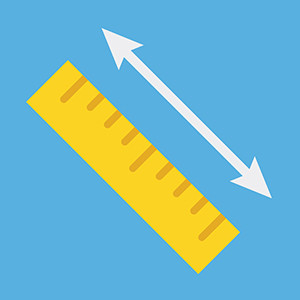
Length
Maybe the reason you’re buying a new cable is to get a different length. For most people, a ~3ft/90cm cable will suffice, but other cable lengths have their advantages. A shorter cable may be better for working with your computer, allowing you to sync or charge your device while keeping your workspace clutter-free. On the other hand, a longer cable can work better for harder to reach plugs or for overnight charging. Regardless, make sure you get an appropriate length for your specific needs.
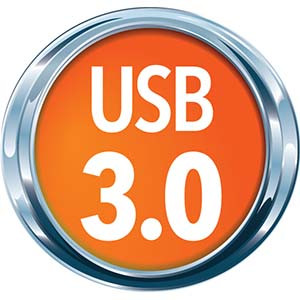
USB Versions
In 2008, USB 3.0 was introduced as the successor to USB 2.0, and since that time, newer USB versions, such as USB 3.1 Gen 1 and USB 3.1 Gen 2, have been introduced to the market as well. But you may still be wondering what the benefits of USB 3.0, and its’ successors, are. The main difference between USB 2.0 and the various USB 3.0 versions is speed. USB 2.0 has theoretical top speeds of 480 Mbps while USB 3.0 has theoretical top speeds of 5Gbps, making it about 10 times faster. USB 3.1 Gen 1 has the same speeds as USB 3.0; however, USB 3.1 Gen 2 has theoretical top speeds of 10 Gbps, twice as fast as USB 3.1 Gen 1. Regardless, in order to get the top speeds from the various USB interfaces, both the host device and peripheral device must use the same high-speed connection type.
